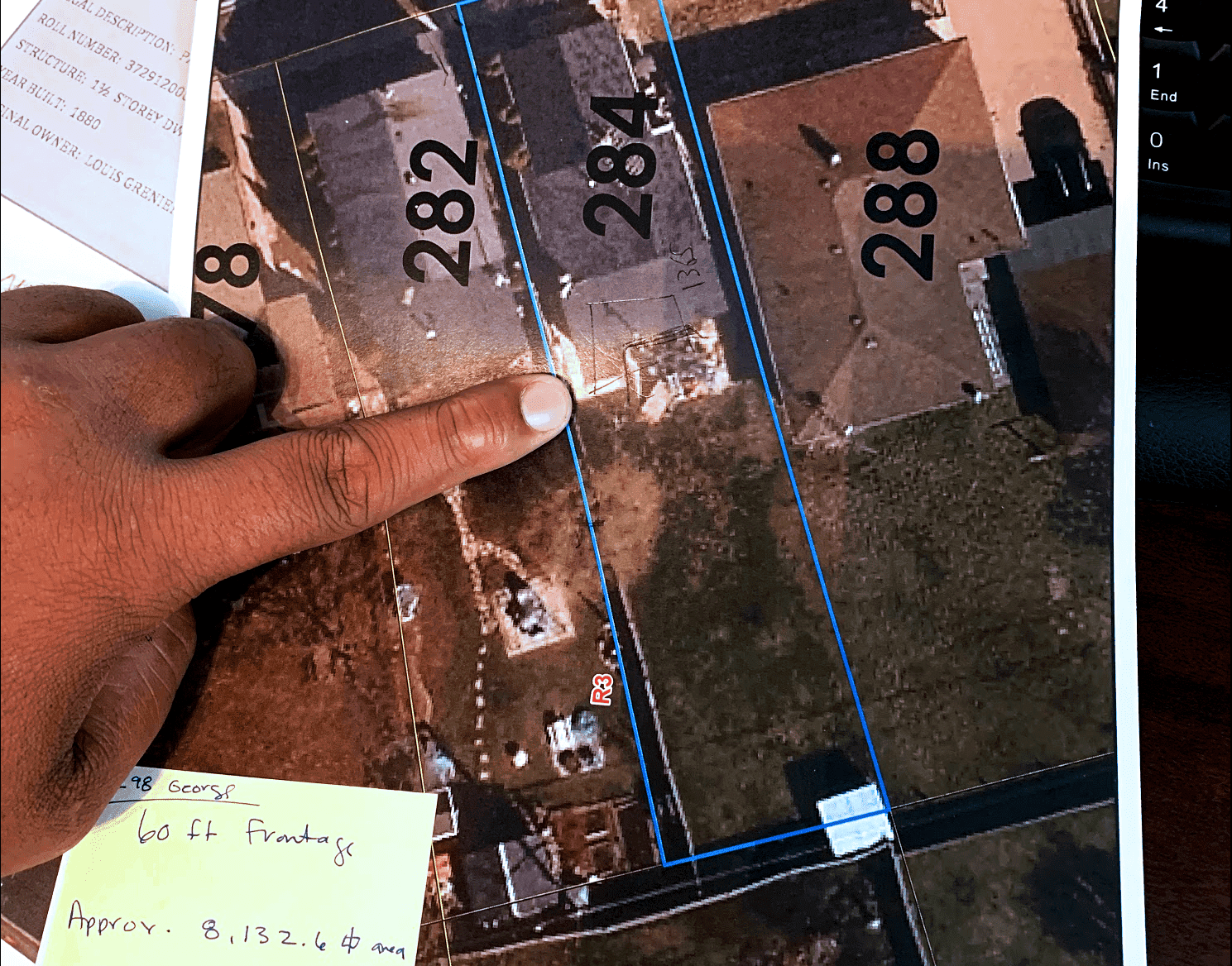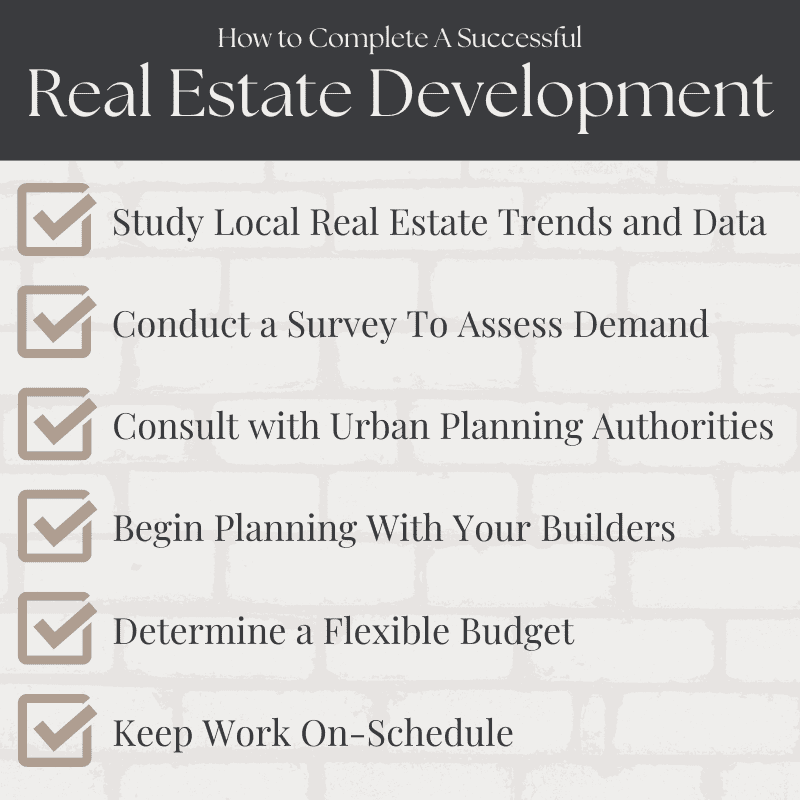Real Estate Development Success: Step-By-Step Guide

The nation of Canada has a problem. At the moment, the average cost of apartment rent and home mortgages are going through the roof as more and more people flock to urban areas, and viable development options are more challenging to identify. It’s a good problem to have, provided you’re in the business of real estate development. For first-time real estate investors looking to get in on the ground floor of something big, or seasoned veterans with the investment capital to make a big splash, the time has never been better to dive into the world of real estate development in Canada. Whether your project is residential, commercial, or industrial, every project starts in the same spot - financing.
I have seen countless developers find themselves stuck and restricted by poor financing options and strict budgets. So, in order to you get your developments started the right way, I built a dedicated commercial financing team at LendCity to help you connect with the best lending options for your project. I am ready to help you succeed, all you need to do is book a call with me or my team here, and we can begin, or, click the button below.
The Basics of Real Estate Development
It doesn’t take long after dipping your toe into the Canadian real estate investment space to discover that the market is filled with ways to make some money. Some investors flock toward the home sales market. Others work on dominating the rental arena. Some play the tourism trade, luring in vacationers who want to bask in the nation’s ample natural splendor.
Then, there are those investors who want to renovate and create, or who want to build something where there was nothing. Those investors naturally gravitate toward the world of real estate development. This expansive umbrella term refers to the complicated series of events that see an empty lot filled with new stores and homes or dilapidated property resurrected from the brink of destruction.
To get started in real estate development, however, you’ll need to understand what it encompasses and where the best opportunities for new investors might be. After all, the real estate development process is different for everyone.
Commercial vs. Residential Developing
Once you’ve decided on real estate development, you need to determine if you want to set your sights on residential or commercial real estate development. After all, there are different types of real estate developments and with each option comes a unique development process. You don’t have to be in the real estate business to understand the fundamental difference between them—it’s exactly what it sounds like. Residential real estate developers build homes and small apartments. Commercial real estate developers build businesses. In Canada, most provinces consider any multi-unit building over four units as commercial development, as well.
Those who are new to real estate development should consider residential development because the construction standards tend to be less rigorous. Besides having stricter standards, commercial construction supplies are more expensive, and the buildings they produce are more complex. If you find that you are operating on a more modest budget, commercial real estate development may be out of the question. At least at first.
Download your FREE Printable Excerpt for this Step By Step Guide
Line Up Your Mortgage/Construction Financing
I am going to be honest with you, one of the biggest mistakes that you can make as a developer is trying to begin without your financing already in place. Often, many land owners, contractors, and permit applications will be able to move forward until you can already prove that you have the funds to get the project finished. After all, if you run out of money at a key point of development, the risk of the project remaining unfinished and falling into disrepairs increases tremendously.
So, in order to avoid as many issues as possible, let me help you. Simply book a call with me today by clicking the previous link, or by clicking the button below and we can begin the process of lining up the financing you need for your next development.
Choose a Location
Before you start building your portfolio, you will need to find a place to launch your development. The good news for aspiring property developers is that Canada is filled with opportunity. As major cities like Toronto and Montreal begin to overflow, residents of the country are looking to the outlying suburbs and towns to purchase a home and find or commute to a job. Smaller towns that neighbour big cities are ideal spots for property development:
- There is space to build in outlying areas.
- The costs of purchase and construction skew cheaper
- The property value has nowhere to go but up as the region continues to attract more residents and buyers
In other words, if you are in a position to begin developing in an up-and-coming region of the country outside a major city, the time to strike is now. Fortunately, there are plenty of popular cities to choose from and even more growing towns. The key is to find an environment that you can visit with ease and that you are personally drawn to. Throughout the development process, you’ll be visiting the place regularly, so it might as well be somewhere you like to go.
Hire a Property Lawyer
The single most important choice you’ll make when you’re beginning in the world of real estate development is your choice of a legal advisor. Real estate development regulations change from province to province (sometimes drastically). As a result, you will want to secure the help of a legal professional who is familiar with the provincial laws as well as the property development scene.
You should aim to find a lawyer early on in the process. Make sure that they’re looking through paperwork and reviewing any property you might have your eye on. A little legal backup can save you from a lot of trouble down the road.
Find an Architect And a Builder
If you’re planning to build a structure from the ground up, you’ll need an architect and a builder. If you simply want to repair or partially reconstruct an existing structure, then you’ll need a builder. The good news is that most construction firms have in-house architects who can handle your needs. They can work alongside you to draw up construction plans, establish a preliminary timeline for the project and take the first stab at the overall budget required for building.
Meet With Local Urban Planning Officials
When you file your construction plans with your local province, you will likely be required to attend one or more in-person meetings with the local planning authorities. These authorities may include your local city council, urban planners, or provincial planning authorities. During these meetings, you will have to explain the merits of your project and its benefit to the community. Commercial developers will discover that these meetings tend to be more rigorous than their residential counterparts as the intrinsic value of a commercial property is far more debatable than that of a housing development.

A Corporate Transfer
In some provinces, a hefty tax is imposed on those who participate in a commercial real estate transaction in. This Transfer Tax can be as much as two percent of the total purchase. However, with a little (legal) financial maneuvering, the Transfer Tax on a property deal can be avoided. Some innovative entrepreneurs (or, at least, their lawyers) discovered that it was possible to set up a corporation for the sole purpose of being the owner of their property.
When someone expresses interest in the land, the property owner may let the territory go, not through an overt land deal but through the transfer of the corporation. The result is the same, minus the burden of the Transfer Tax.
This is only a basic overview of what it takes to develop real estate. As a new developer, we can’t overstate the importance of finding trustworthy legal advisors, architects, builders and other authorities who can guide you. Choose wisely and you’ll be rewarded with greater success.
Frequently Asked Questions About Real Estate Development
What Do Real Estate Developers Do?
However, in the grand scheme of things, there are a wide array of real estate development jobs and roles that call allow you to explore the industry in unique ways suited to your skillset.
Who Are The Biggest Real Estate Developers in Canada?
- Concord Pacific
- Onni Group
- Westbank
- The Minto Group
- Mattamy Homes
- The Daniels Corportation
- Tridel
What Should You Study In Order To Become a Real Estate Developer?
A popular choice amongst real estate developers is Urban Planning. As well, some developers opt to pursue architecture, accounting, or a full masters degree in Real Estate Development.
How Do Developers Make Money
First, for developers working as part of a larger real estate development corporation, there are salary positions available.
Alternatively, most developers and development companies make their money on the rent or sale of the property once it is completed. This is why it is so important that you ensure the local demand is present for the specific type of property you are developing in the area.
How to Finance Your Next Development
Developing properties is a numbers game. Unfortunately it is incredibly easy to find yourself overdrawn and underfunded if you do not take the time to secure the best financing options for your specific project. That is why my commercial financing team works alongside a wide network of lenders to ensure that your financing is custom catered to your project.
To get started today, give me a call at 519-960-0370, or visit us online at LendCity.ca and book a consultation to discuss your plans with us.
